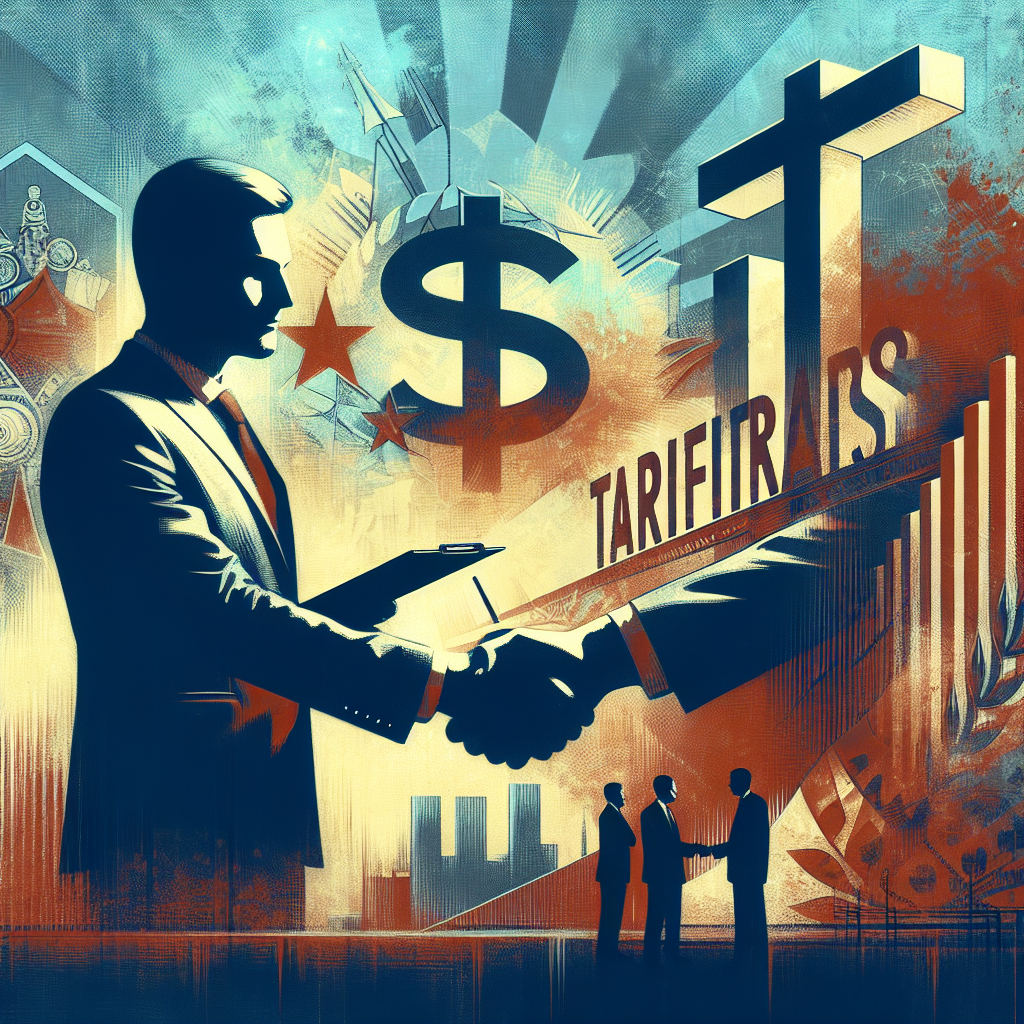Donald Trump and Kamala Harris are two prominent figures in American politics, whose contrasting positions on various societal and economic issues reveal a fundamental difference in their governance philosophies. While they may argue on numerous political fronts, both exhibit a belief in a similar disregard for the traditional constitutional boundaries that govern the conduct of government. This inclination towards authoritarianism manifests in their respective approaches to economic policy, with Trump’s recent emphasis on protective tariffs representing a notable example. Despite his claims of bolstering American industry, there are deeper implications to consider, particularly with respect to governmental overreach and its detrimental impact on both businesses and consumer welfare.
In a recent interview with Bloomberg News, Trump defended his views on tariffs, dismissing the existing tariffs in place and suggesting that companies could easily avoid them by relocating their operations to the United States. This simplistic perspective fails to acknowledge the complexities of international trade and the potential repercussions of raising tariffs significantly, as exemplified by the historical context of the Smoot-Hawley Tariff, which exacerbated the Great Depression. Trump’s argument seems to stem from a profound misunderstanding of economic principles and historical lessons, as he appears to advocate for punitive measures against privately-owned enterprises like John Deere for decisions made in the face of regulatory and financial pressures. His approach raises questions about his understanding of government limitations, particularly the constitutional authority over tariffs and economic regulation, suggesting a worrisome trend towards autocratic governance.
Trump’s belief in his right to influence economic policy extends beyond tariffs to monetary policy, wherein he expressed his desire to impact the Federal Reserve’s decisions on interest rates. This reflects a troubling assumption of authority that aligns with a broader trend of executives assuming legislative and regulatory powers which the Constitution clearly designates for Congress. This mindset not only risks eroding the checks and balances essential to American democracy but also suggests a fundamental misunderstanding of sound economic governance. In attempting to control or manipulate market dynamics, Trump mirrors the very authoritarian tactics that critics often ascribe to Harris and her Democratic allies, revealing a shared inclination towards state control in lieu of market freedoms and private enterprise.
The critique of Trump’s economic strategies does not wholly dismiss him as a leader; there are indications of genuine patriotic sentiment in his policy considerations and some of his previous accomplishments during his presidency. However, his penchant for authoritarianism raises pressing concerns. It is this very trait that leaves him vulnerable to critique from those who oppose his administration. Such critics may claim the moral high ground while exhibiting similar tendencies toward authoritarian governance themselves. This dichotomy presents a conundrum: if Trump’s desire to impose his economic vision through power is fundamentally flawed, then what distinguishes his approach from Harris’s when she executes similar maneuvers to enforce her policy objectives?
In light of this autocratic mentality, one cannot help but reference the theories of classical economic thought, including those articulated by Adam Smith, who cautioned against bureaucratic overreach into private economic decisions. Smith articulated that the belief in the ability of leaders to manage and dictate economic behavior was not only misguided but perilous, as it undermines the foundational principles of individual choice and market dynamics. Trump’s punitive approach towards companies and industries derails the cultivation of a free market environment, where businesses can operate with fewer constraints and greater creativity. Such an environment naturally fosters innovation—a principle integral to American economic identity that is being jeopardized by increasing government intervention.
A reevaluation of Trump’s policies leads to the acknowledgment that instead of crafting a coherent pro-business agenda, his tactics veer into authoritarianism, whether intentionally or not. An alternative approach, which could redefine the political landscape, would be the public commitment to dismantling unconstitutional regulations that hinder business growth. Such a resolution would resonate with business owners and resonantly advocate for libertarian ideals that embrace innovation and personal responsibility. Advocating for the removal of restrictive regulations could serve as a more productive approach than the current punitive measures, which only serve to entrench the divide between government and industry.
Ultimately, political leaders like Trump and Harris must confront the delicate balance between authority and liberty. While they may differ on policy issues, they share a common tendency towards authoritarianism that can stifle the very virtues they aim to promote. The challenge lies in fostering an environment where constitutional governance prevails, ensuring individual freedoms, and minimizing governmental overreach. By refocusing on the principles of liberty, individual choice, and sound economic policy, American politicians can realign their efforts to benefit the very citizens they purport to serve, steering clear of the authoritarian pitfalls that threaten to undermine the foundations of democracy itself.

